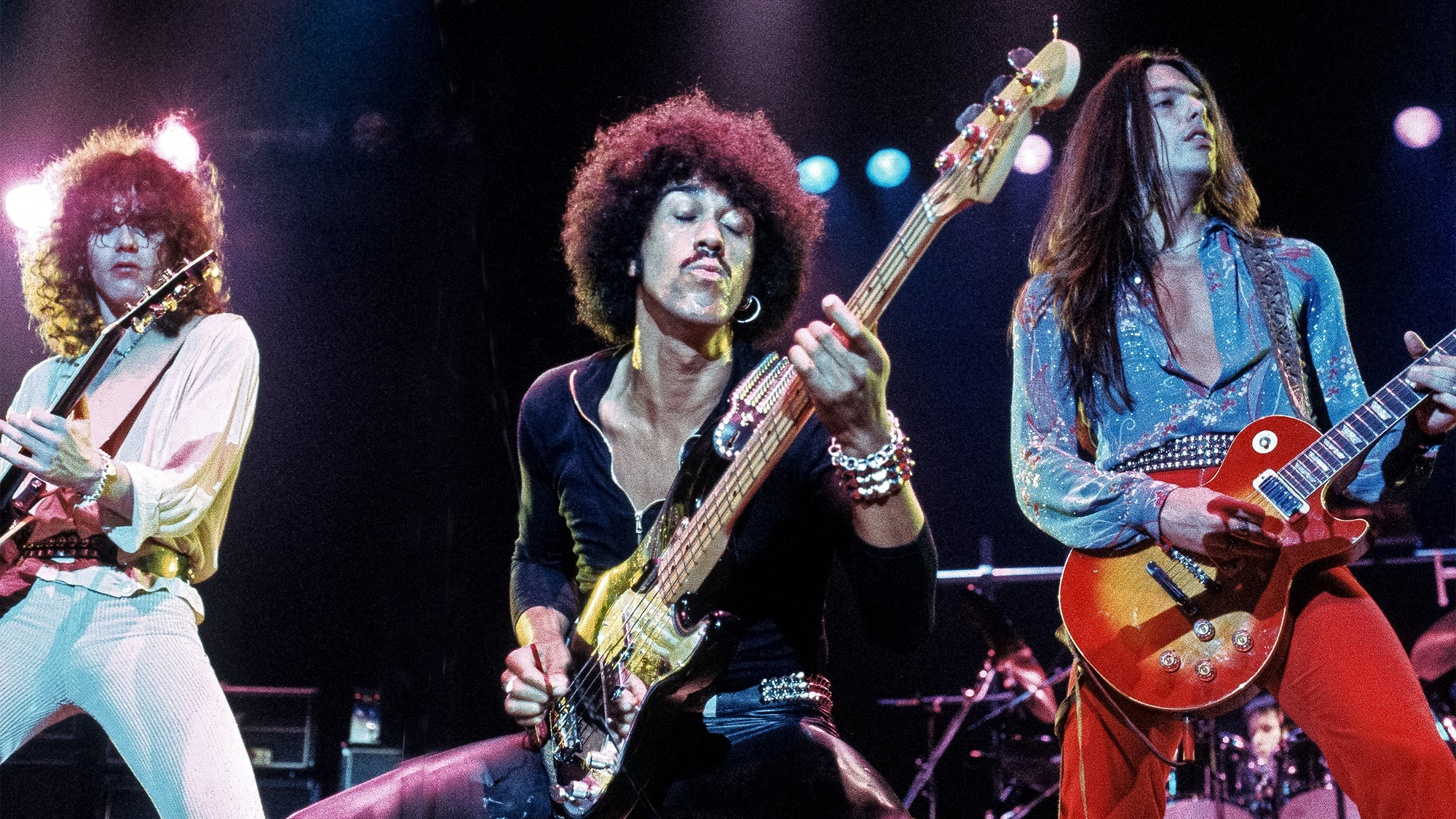“He says, ‘That's the lick, man! How come he only plays it once at the end of the song? It's the whole hook.’” Tom Petty and Mike Campbell on how a chance meeting saved the Heartbreakers’ debut single from oblivion
Petty was so excited to find the hook, he called the band back in the studio to remake the song — at four in the morning

All the latest guitar news, interviews, lessons, reviews, deals and more, direct to your inbox!
You are now subscribed
Your newsletter sign-up was successful
“You know, Michael is not one to show off,” Tom Petty said of Heartbreakers guitarist Mike Campbell in an interview in Guitar Player’s August 1986 issue. “He thinks as a writer a lot, which sometimes I have to kick his ass about. I want to tell him, ‘Go ahead and give it to me.’”
When Campbell gave it, he gave it good. In one early session for the group’s debut single, “Breakdown,” the guitarist devised what became the song’s signature hook. But as Petty told us, the lick — a bluesy line that descends seductively from A to E an octave below — was originally buried in the song’s outro guitar solo. It took some assistance for him to hear it for what it was.
Fortunately, he had a little help.
“There's a story behind that,” Petty told us. “I wrote ‘Breakdown’ in the studio about 11 years ago, and the first version was seven minutes long, with this long guitar solo in the end.
“Everyone had gone home, and I was sitting there listening, and in walks Dwight Twilley.” The singer/guitarist, who is best known for his top 20 hit singles “I’m on Fire” and “Girls,” caught the tune as it was fading out, but not before he heard Campbell’s snakey descending riff buried in the solo.
“Twilley turns to me and says, ‘That's the lick, man! How come he only plays it once at the end of the song? It's the whole hook.’
“I listened back, and he was right,” Petty said. “So I called the band up — 4:00 in the morning — and told them to come back down. We did it again around the lick, took a couple takes, and there it was.”
All the latest guitar news, interviews, lessons, reviews, deals and more, direct to your inbox!
As Campbell told us in the same issue that contained Petty’s interview, he used his 1950 Fender Broadcaster — the same electric guitar heard on “American Girl” — for the solo in “Breakdown.” He purchased it for $600 in 1976, along with a blackface Fender Deluxe Reverb, during the recording of Tom Petty and the Heartbreakers’ debut album. "I felt my soul shake," Campbell said of hearing the Broadcaster through the Deluxe. He calls it “the guitar I can’t live without.”
“It's a good all-around guitar,” he explained to us in 1986. “For rhythms, solos, whatever — it always works. Anytime I'm stuck and can't get a sound, I just plug that one in.
“On ‘Breakdown,’ I think I was on the bass pickup for the intro and then I went to my treble pickup for the middle.”
Campbell recalled that once he and Petty salvaged the lick from the outro solo, he tried playing it with a slide. “I use a pill bottle with a ridge on it — One A Day vitamins, I think,” he explained.
I called the band up — 4:00 in the morning — and told them to come back down. We did it again around the lick, took a couple takes, and there it was.”
— Tom Petty
Eventually, though, “we decided that the bottleneck was too bluesy. So I just played the part without the bottleneck and it worked. It’s just one of those things you stumble onto.”
It wasn’t the last time one of Petty’s songs would receive a new life. He nearly abandoned “I Won’t Back Down” until producer Jeff Lynne encouraged him to record it. The track became his first solo hit.
“People are always telling me, ‘That song helped me through the worst time of my life,’" Petty recalled of the tune.
As for “Breakdown," Petty told Guitar Player it’s the hook that saved the song.
“What he says is essential,” Petty said of Campbell. “The lick in ‘Breakdown’ — I can't imagine that song without it.”
Christopher Scapelliti is editor-in-chief of GuitarPlayer.com and the former editor of Guitar Player, the world’s longest-running guitar magazine, founded in 1967. In his extensive career, he has authored in-depth interviews with such guitarists as Pete Townshend, Slash, Billy Corgan, Jack White, Elvis Costello and Todd Rundgren, and audio professionals including Beatles engineers Geoff Emerick and Ken Scott. He is the co-author of Guitar Aficionado: The Collections: The Most Famous, Rare, and Valuable Guitars in the World, a founding editor of Guitar Aficionado magazine, and a former editor with Guitar World, Guitar for the Practicing Musician and Maximum Guitar. Apart from guitars, he maintains a collection of more than 30 vintage analog synthesizers.

